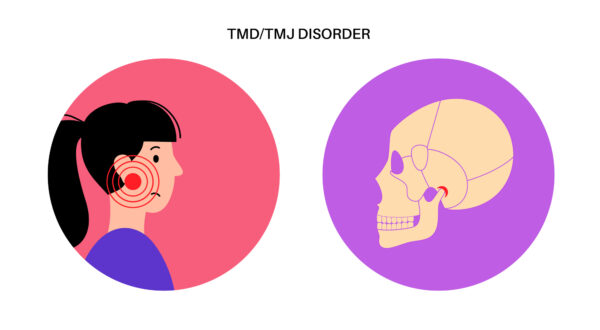
Many people have turned to Botox, which is well-known for its wrinkle-reducing effects, as a way to alleviate the pain and discomfort caused by TMJ issues.
For those grappling with jaw pain and disruptive clicking sounds due to TMJ disorders, the limited treatment options available can be disheartening. In recent years, Botox has emerged as a potential remedy for TMJ pain, with professionals successfully utilizing it for over fifteen years to treat TMJ, facial pain, and clenching/grinding. This post delves into the effectiveness of Botox in addressing TMJ issues, providing answers to key questions surrounding its application.
Understanding TMJ Disorders
TMJ disorders encompass a group of conditions affecting the temporomandibular joint (TMJ) and the surrounding muscles. The TMJ, a three-dimensional joint connecting the lower jawbone to the skull, facilitates various jaw movements. Symptoms of TMJ disorders include jaw pain, clicking or grating sounds, difficulty in mouth movement, headaches, earaches, facial pain, and neck pain. Causes range from teeth grinding, jaw injuries, and arthritis to stress, poor posture, and repetitive jaw movements.
How Botox Aids in TMJ Treatments
Known for its wrinkle-reducing properties, Botox has gained popularity as a solution for easing the pain and discomfort associated with TMJ disorders. Botox is injected into jaw muscles, which are responsible for clenching and grinding, to temporarily relax muscles. While Botox can be effective for TMJ, its suitability varies among individuals, emphasizing the importance of consulting a specialized professional for accurate diagnosis and treatment planning.
Combining Botox with Other TMJ Treatment Approaches
While Botox proves valuable, its effectiveness is often enhanced when combined with other TMJ treatment approaches. These may include self-care practices such as stress management and good posture, as well as physical therapy involving exercises to strengthen and improve jaw function.
Benefits of Botox for TMJ
Botox injections offer several benefits for individuals dealing with TMJ pain and discomfort:
- Reduced Pain and Tension: Botox temporarily relaxes muscles, significantly decreasing jaw clenching, grinding, and associated aches and headaches.
- Improved Jaw Mobility: Relaxed muscles contribute to smoother jaw movement, facilitating easier mouth opening and reducing clicking or popping sounds.
- Headache Relief: Botox effectively diminishes tension-related headaches associated with TMJ by easing muscle tension.
- Minimal Disruption: The quick and minimally invasive injection procedure results in little downtime, with effects lasting 3-6 months for sustained relief.
- Non-Invasive Alternative: Botox serves as a non-invasive alternative for those who may not have found success with traditional TMJ treatments.
Considerations on Cost and Insurance
The cost of Botox for TMJ treatment can vary based on the provider’s experience and expertise. Board-certified specialists with extensive TMJ treatment knowledge may charge more than general practitioners. Insurance coverage for Botox injections for TMJ is often limited, requiring pre-authorization and a letter of medical necessity. Some specialized insurance plans focusing on chronic pain management may offer coverage, emphasizing the need to review individual plans and inquire with insurance providers.
Risks Associated with Botox Treatments for TMJ
While generally safe, Botox treatments for TMJ carry some potential risks, including facial asymmetry due to muscle relaxation, pain or bruising at the injection site, and temporary flu-like symptoms post-treatment. Consulting a highly qualified professional with experience in TMJ treatments is crucial to carefully weigh potential benefits and risks before deciding on Botox for TMJ.
Conclusion
In conclusion, Botox presents a promising avenue for individuals seeking relief from TMJ-related issues. Its ability to reduce pain, improve jaw mobility, and offer a non-invasive alternative makes it an attractive option. However, consulting a qualified medical professional, considering individual needs, and understanding potential risks are essential steps in determining the suitability of Botox for TMJ treatment.
Dentox offers comprehensive training on administering Botox injections in the chin and jaw areas, ensuring that practitioners can deliver optimal results for their patients. This enhanced skill set may contribute to increased patient satisfaction and the likelihood of them seeking further aesthetic treatments. Dr. Howard Katz, renowned as one of the country’s premier injectables instructors, provides the opportunity for students to engage in personalized training experiences either in person, online, or at their convenience.
By choosing Dentox, you gain access to high-quality education that empowers you to deliver exceptional care to your patients while boosting your business’s profitability. To explore upcoming in-person and online training programs focused on patient treatment, along with registration details, please visit https://dentox.com/live-courses/ and https://dentox.com/botox-training/.







